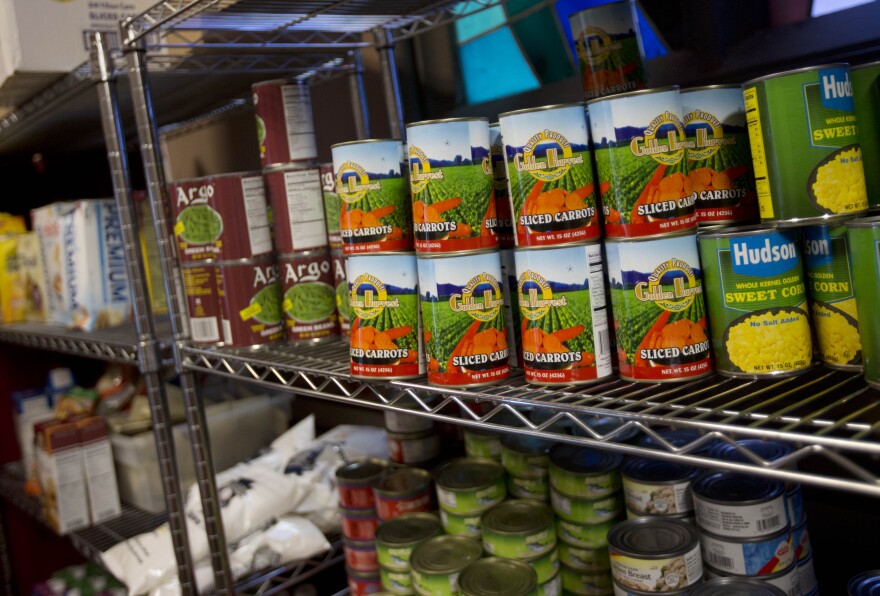The need for food pantries has only increased since the start of the COVID-19 pandemic — even as people return to work, and parts of the economy slowly reopen.
About one in every ten Long Islanders suffer from food insecurity each year, before the global health pandemic.
Long Island Cares is a non-profit food distributor with 26 locations across the island. They say more than 70,000 additional people have been served since the start of the pandemic, and that need won’t go away any time soon.
“What we are hearing, and what people are reporting to us is that furloughs, taking a leave, or being temporarily terminated from your job, so you can collect unemployment,” said Paule Pachter, the organization’s CEO. “That’s still hitting Long Island pretty hard.”
Long Island Cares distributed 6.9 million pounds of food since January — a 46% increase compared to the same period last year.
Pachter said the record number of job losses combined with Long Island’s high cost of living have caused so many more people to seek help recently.
“There are pockets of affluence that most people are aware of — the extreme south shore, the east end, the hamptons communities, the gold coast on the north shore — after that, most people on Long Island are struggling,” he said. “To pay their mortgage, to pay their rent, high property taxes…”
Randi Dresner, president of Island Harvest food bank, said it could take years for someone to economically recover after disaster strikes.
“After 9/11, after Superstorm Sandy, after the recessions and many other disasters, what we know about a crisis of this magnitude, it’s going to take a number of years for people to get their feet back on the ground,” Dresner said.
Nancy Coughlin, CEO of Person-to-Person, a social service agency helping people recover from economic hardship, said it’s a similar situation in Connecticut.
“Our challenge is looking at how we operate in, sort of, this new normal where we know the demand is going to be quite high for many years to come,” Coughlin said.
Person-to-Person operates three food pantries in Fairfield County, and they’re now providing about 90 percent more food than they were just a year ago.
Coughlin said she’s preparing for that need to grow, as the $600 a week in federal unemployment insurance benefits will expire at the end of the month.
“At that point there’s gonna be people who have been getting by okay, who are going to start needing to turn to food pantries, so we think the need is going to continue to grow for quite some time,” she said.
Coughlin said the state has a very wide income inequality, which is especially true in Fairfield County, and exacerbated since the pandemic.
The county is also home to half the state’s undocumented immigrant population, who are unable to apply for assistance programs like SNAP.
Food pantries across the region are now asking for help from volunteers, as well as the government to meet the demands from the communities they serve.
“I think we are going to have unprecedented poverty in America, unless we take this opportunity to reimagine the way we structure our social safety net, and we reinvest in taking care of people,” she said.
Coughlin said they have lost most of their volunteers, as most are retired and in the high risk population.


